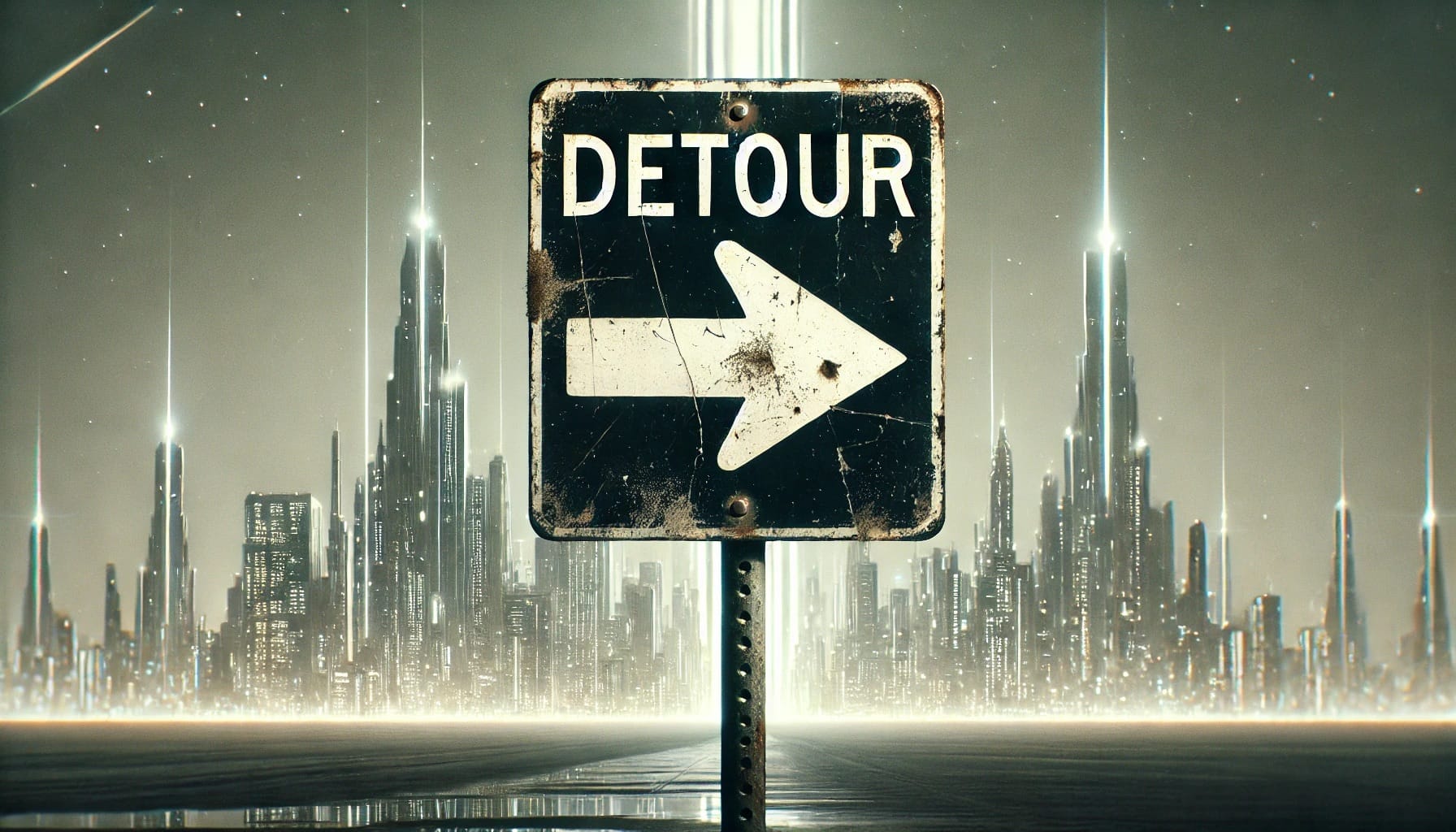
In 1992, political scientist Francis Fukuyama declared that we had reached the end of history. Not that events had stopped happening, but that the evolution of government—the struggles between monarchy, socialism, fascism, and democracy—had ended with the final and lasting triumph of liberal democracy. Humanity, he said, had reached “the end point of mankind’s ideological evolution and the universalization of Western liberal democracy as the final form of human government.”
Fukuyama was not the first to suggest the idea. Hegel, Marx, Mill, and Tocqueville also argued that history was evolving in the direction of greater individual freedom and democratic societies, and that an endpoint could be envisioned at which democracy will have exhausted and defeated its competitors—a version of the myth of progress.
Fukuyama was the first to claim that the end of history was not in the future, but directly under his feet.
It certainly felt like that in 1992. The Soviet Union had dissolved with shocking speed, taking the Berlin Wall with it. Several former Soviet satellites and republics adopted democratic governance and market economies and began knocking on the doors of the EU or NATO or both. New multiparty elections took place in a number of Latin American and African nations. Argentina's military junta had buckled in 1983, and Chile returned to democracy in 1990 with the ouster of Pinochet.
But it took less than a decade for the wheel of history to grind back to life.
In 2001, attacks by Islamic fundamentalists had Western democracies scrambling to roll back many fundamental rights and freedoms. A growing isolationism and anti-immigrant sentiment fueled right-wing movements throughout Europe and the United States. At the same time, popular confidence in institutions like media, elections, and government itself began a death spiral for which no end is yet in sight. Authoritarian Russia has reasserted its place on the world stage, and authoritarian China is making a serious play for a Chinese century.
Though he still considers Western-style democracy the most viable and enduring system, one that in the end will reassert itself and provide a stable end to the cycle, even Fukuyama is far less confident now than he was 30 years ago. The dominant narrative at the moment agrees with his dim reassessment. Many experts now see the ratchet on the wheel of fortune coming to rest for good and all, not on democracy, but on authoritarianism.
A grim reassessment
In Twilight of Democracy: The Seductive Lure of Authoritarianism, historian Anne Applebaum suggests that these forces are not transient but could represent a more enduring transformation. On Tyranny author Timothy Snyder echoes her warnings, urging a more proactive defense of democracy. Even Francis Fukuyama has been sounding alarms, most recently in an interview in The Atlantic.
Although I want them to be wrong, the anthropologist in me is increasingly convinced that they are not. If history is indeed ending, a much stronger argument can be made for authoritarianism than democracy as the lazy resting place for it to finally lay its weary head.
Lazy is the key word here. Social systems, like biological systems, tend in the long run toward paths of least resistance. To call liberal democracy the final arrival point of human government is to suggest that it requires less energy to maintain democracy—that it is (to use a problematic word) a more "natural" condition than authoritarianism. I can perhaps see that argument on a small scale. Bands of 15 to 20 individuals on the savanna may more naturally fall into egalitarian systems. But once you get well above the Dunbar number, or Bernard-Killworth, or whatever threshold you prefer for a maximum number of meaningful human relationships, we begin to lose the ability to grasp the whole community and to trust its functioning.
Democracy is our stretch condition. We can get there when conditions are right, but it takes less fear or indifference for it to snap back than we might hope. In the end, it's easier, lazier, and arguably more natural in evolutionary terms to hand the reins to a strongman than to conceive of and trust the fuzzy millions or the abstract institutions that bind them together. Authoritarian parties worldwide are creating new paths to wealth or power for their oligarchs, who snap it up hungrily, further encouraging the regression.
As for the rest of us, it's easier for the strongman to secure fealty by pushing Paleolithic buttons of fear than by pulling levers of trust and joy.

The case for an authoritarian end
But democracies have risen from authoritarianism before. Why should tyranny be a permanent condition this time?
There are a number of conditions suggesting that if we lose our democracy, it will be dramatically harder to climb out of autocracy this time.
Economic discontent used to be a major driver for democratic uprisings. But authoritarian states like China have learned how to secure economic success while maintaining tight political control, reducing the likelihood of such uprisings.
The rise of digital technologies has made surveillance easier and resistance harder.
Authoritarians have secured the tools and knowledge of modern marketing that allow them to more efficiently leverage new media, including social media, to build and maintain populist movements. Social media in particular is a populist authoritarian's dream, making disinformation easier and less costly than ever.
Then there is the global infrastructure of democracy. One of the most important springboards for new democracies in the past century has been the existence and strength of other democracies. For all its grotesque and often anti-democratic meddling in the affairs of other countries, the US has managed to help establish or re-establish democracies in Germany, Japan, South Korea, the Philippines, and Eastern Europe, among others. The UK, the UN, and the EU have also played key roles in strengthening new democracies with economic incentives and diplomatic pressure. If these bulwarks lose their own democratic footings, it will be much harder for fledgling democracies to find theirs.
Perhaps the most unfavorable element for a future pro-democracy climate is the climate itself. As living conditions degrade in the US and Europe, an unprecedented torrent of desperate populations will move north in their millions from the even less livable tropics. It takes little imagination at this point to imagine an authoritarian rallying the homeland population against an invading hoard, especially as our own resources dwindle and conditions worsen. Preserving democratic institutions would be hard enough in that situation. Restoring them would be impossible.
Then there is what Applebaum calls the "seductive lure" of authoritarianism. If the phrase baffles and repels you, it's worth taking a moment, with Applebaum, to imagine yourself in the skin of someone for whom our once-and-future president is the answer to prayers. His promises are simple, his solutions black-and-white. He, like you, distrusts diversity and feels that the world has gone mad kneeling to it. He speaks in certainties in an uncertain time. He radiates power. And he speaks to your own deep feeling that things were much better in the past.
Now ask yourself if the proportion of people to whom that narrative appeals are likely to increase or decrease in the next 10 years.
We climb out of tyranny with difficulty. We fall back easily. If we lose our democracy now, it will be much harder, if not impossible, to get it back later. Whatever we can do, now is the time.
